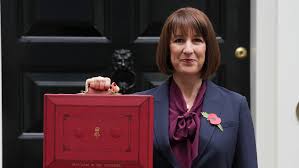Just when it looked like Labour’s controversial benefits plan was moving forward, Prime Minister Keir Starmer made a sudden U-turn—and now, it might cost UK households dearly.
With the government backtracking on major disability benefits reform to avoid a rebellion from within its own party, economists are warning this decision could lead to higher taxes across the board come Autumn.
Labour Drops Key Cuts to Avoid Massive Backbench Revolt
The government confirmed on Friday that it will no longer push ahead with its planned cuts to disability benefits—specifically, to Personal Independence Payments (PIP) and the health element of Universal Credit.
This shift came after more than 120 Labour MPs threatened to rebel.
Rather than reducing payments for current claimants, the cuts will now only apply to new claimants going forward.
A £3 Billion Hole in the Budget
While this change might have calmed tensions in Parliament, it’s left a gaping hole in Chancellor Rachel Reeves’ financial strategy.
The Institute for Fiscal Studies (IFS) says the original plan would’ve saved £5.5 billion by the end of this Parliament.
Now, it’s expected to save just £2.5 billion, leaving a £3 billion shortfall Reeves will need to fill.
Tom Waters from the IFS described the change as a major blow, saying it “more than halves” the projected savings and makes Reeves’ already tough balancing act even harder.
Tax Hikes Now Look Unavoidable
With the government unlikely to reduce spending in other departments, experts believe Reeves has little choice but to raise taxes.
Financial adviser Samuel Mather-Holgate summed it up bluntly: “With Starmer doing more U-turns than someone on the bleep test, taxes are going up.”
But which taxes are most likely to rise? Reeves has already ruled out increasing income tax, National Insurance, VAT, and corporation tax—which means she’ll have to get creative.
Capital Gains Tax Could Be First on the List
One option on the table is increasing capital gains tax, which targets profits made from selling things like stocks, second homes, or valuable possessions.
Rates for gains on shares were already increased in 2024, but further hikes are possible. Since capital gains usually affect wealthier individuals or risk-takers, this might be politically easier to justify.
Inheritance Tax May Come Under Fire Again
Another strong contender? Inheritance tax.
Reeves has already reduced business and agricultural reliefs and plans to bring pensions into scope for inheritance tax by 2027.
More changes could follow, especially as this tax continues to pull more households into its net.
Pensions Perks Could Be Trimmed
Pensions—one of the UK’s largest stores of personal wealth—might also be targeted.
Last year, Reeves hinted at changes and is already dragging unused pension pots into inheritance tax from 2027.
A recent HMRC consultation on salary sacrifice has also sparked fears that Reeves could introduce a cap, limiting how much income people can shift into pensions tax-free.
She may even look at reinstating the pensions lifetime allowance or reforming tax relief on pension contributions.
Stealth Taxes Already Quietly Squeezing Households
Even without headline-grabbing hikes, many are already feeling the pinch from frozen tax thresholds.
By not increasing the personal allowance and higher rate thresholds since 2021, more people are being dragged into higher tax bands.
John Woolfitt of Atlantic Capital Markets called it a “stealth tax,” warning that simply freezing these thresholds again would raise billions in extra revenue without officially announcing a tax rise.
Property Taxes and Stamp Duty May Be Revisited
Tax on property could be another lever for Reeves.
In 2024, she added a 2% stamp duty surcharge for second-home owners.
Future increases could target landlords, multiple homeowners, or buyers of high-value homes, which could raise money but risk rattling the housing market.
Businesses May Face More Pressure Too
While Reeves has ruled out another corporation tax rise for now, she may explore other business-related taxes or VAT exemptions.
But many experts caution this could shake already fragile business confidence, especially in sectors still recovering from the pandemic and inflation shocks.
Wealth Tax Still on the Radar
Though not officially on Reeves’ agenda, a wealth tax remains a hot topic among campaigners.
Groups like Tax Justice UK are calling for a 2% tax on assets over £10 million, arguing it could raise up to £24 billion a year.
They also want to see National Insurance extended to investment income and a new 4% tax on share buybacks.
But with an estimated 16,500 wealthy Brits predicted to leave the UK this year due to rising taxes and economic gloom, the government may tread cautiously.
What’s Next?
With a £3 billion gap to plug and limited options, Reeves will have to make some tough choices.
Whether through wealth taxes, pension tweaks, or freezing thresholds, many households and investors could soon feel the effects of Labour’s policy shift.
One thing is clear: the Autumn Budget 2025 is shaping up to be a pivotal moment for the UK economy—and taxpayers are bracing for what’s to come.
